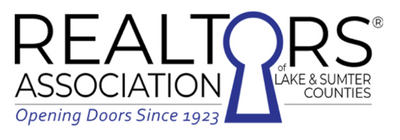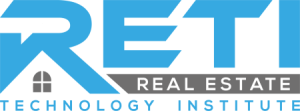How to Keep Your Website Safe from Hackers
Website design used to be a members-only club where if you wanted a website, you would have to hire someone with a graphic design background as well as an HTML programming background. To create a personal solo or small business website. Now, with the rise of web-based, user-friendly web design tools like WordPress, Wix, Joomla, Duda, Shopify, and Squarespace, all you need is access to the web and a working knowledge of computers and you can design an eye-popping website. However, using these types of tools to design your website can make you or your business an easy target to criminals who know that individuals and smaller businesses don’t have systems in place to keep them safe. Want to keep your website safe? Read on to find out what you need to do to secure your site.
Why do hackers attack websites in the first place?
In truth, it doesn’t matter how your website was designed. You could have paid an individual or company to do it or you may have designed a website set up for personal reasons, a side hustle, or a small business. Whatever the case, you need to know you’re a huge target. Criminals like to pick on you because in many instances you’re not going to secure those accounts as you should. This also goes for those social media business pages as well. If you’re like most people you’re probably thinking criminals won’t bother those accounts because you’re too small. But there are things crooks can do to make money from your site. They can hijack your site to get access to a mailing list. They can take over the site and places ads on your page to scam unsuspecting people. They can install malicious code on your website that will infect your potential and current customers with ransomware. Finally, they can take over the site completely and ask for a ransom for you to get access to your website.
How do you stop website hackers?
If your website or social media business page were to get hacked, you know it would be a lot of work to reload your website or create a new one from scratch which is why it is important to make sure your social media and website are safe and secure. The best defense is a great offense, right? Here’s what you need to do:
- Passwords, or should I say passphrases? Yes, passwords are a pain in the ass, but they are one of the most important things to keep your online accounts safe. If you’re using a web-based website design tool for your website Anyone can get access to the login screen. All it takes is a bot or a clever hacker to figure out that easy to guess the password and they are in and can do whatever they want. Same thing if you have a business account set up on social media. Quit using passwords and switch to passphrases which are sentence-like string of words used for security that is longer than your traditional password. They are easy to remember and difficult to crack.
- Do the Two-Step With Two Factor Authentication. With all online accounts, you need to enable 2FA or Two Factor Authentication. Let’s say you get a criminal who tries to log in to your website with your password, you’ll get an alert via text or email asking if you’re the one logging in. If you’re not, you’re given the opportunity to deny the login and change your password. Guaranteed to keep your accounts safe.
- If you love your website, go ahead and back that thang up. Web-based designed websites are hard to back up because you’re normally relying on the host to back it up for you. Never just rely on one source. Although you can’t always download that site to your computer or a thumb drive, there are several things you can do to keep a record.
- Take photos of it. It may sound dumb, but photos will at least help you keep a record of how the website was laid out. If you have to recreate it, you have a good jumping-off point.
- Go to the Internet Wayback Machine. The Internet Wayback Machine is a website run by a non-profit. Located at www.archieve.org, this site keeps a large amount of the records for websites. If a last-ditch effort is needed for you to look at a visual of your damaged site, go here.
4. Check out Your Plugins and update that Software Regularly. You won’t have to do with most internet-designed websites, but sites like WordPress need to be updated to have plugins updated regularly. These programs can enhance the look and feel of your website, but you want to update them. Outdated plugins can be a gateway for a criminal to gain access to your website.
5. Just let someone do it. Yes, being able to assemble your own website can save a lot of costs, but if you let someone design and host your website, it will take a lot of stress out of creating and protecting your site. Before you turn your website over to anyone, there are some things you need to check out:
- What tool are they using to design your website? If you’re hiring a company to design your website and they are using an internet-based web design tool, make sure they are taking all the precautions needed to keep your site safe. If they are creating the website from scratch using HTML find out how they are going to host the website.
- Will they continually support you? If someone is hosting and designing your website, what type of support are you going to get after the website is up and live? Will you have to pay a monthly fee for support? You need to have a plan in place if no support is involved
I hope you can use these tips to prevent your website and business social media site from being hacked by hackers
Video & Bonus Content is for RETI Members Only
Login or Sign Up to view this content

|
Member LoginForgot Your Password? |




